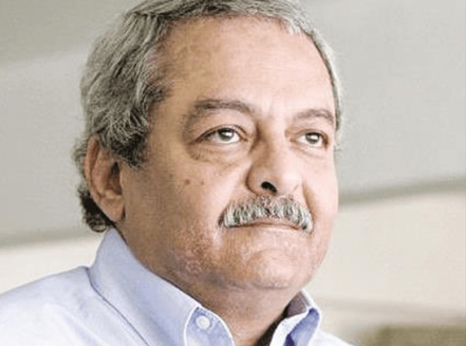Egypt: Arbitrarily Detained Critic Risks Harsh Sentence

Hisham Kassem is one of the founders of the Free Current Movement, a coalition of opposition liberal parties and political figures formed in June 2023 calling for alternative economic policies. He is a prominent news publisher and author, and former president of the Egyptian Organization of Human Rights.
Hisham Kassem’s arrest on 20 August comes amid the Egyptian authorities intensified crackdown on critics and the harassment of relatives of dissidents abroad. In August 2023, the authorities arrested the fathers of Egyptian journalist Ahmed Gamal Ziada, based in Belgium, and German-Egyptian activist Fagr al-Adly, based in Germany. Both have been questioned about their sons’ activism. On 30 August, the authorities re-arrested Mahmoud Hussein, who was arbitrarily detained between January 2014 and March 2016, for wearing a T-Shirt with the slogan “ A Nation without Torture” in relation to a case dating back to January 2014. On 2 September, prominent activist Mohamed Adel was sentenced to four years’ imprisonment on bogus charges of “spreading false news”. Another activist and former detainee Ahmed Hamdy al-Sayed, also known as “Gika”, was rearrested in June 2023 and subjected to enforced disappearance until 27 August, when prosecutors ordered his detention pending investigations into bogus accusations of “spreading false news”. This unrelenting assault of peaceful dissent exposes the government’s lack of commitment to genuine reform, despite launching the long-awaited National Dialogue with the opposition in May 2023 and the release of a handful of high-profile critics held in prolonged and unjust imprisonment for political reasons, including Ahmed Douma and Patrick Zaki. Thousands more continue to be held arbitrarily solely for exercising their rights to freedom of expression, association or peaceful assembly, without legal basis or following grossly unfair trials.
The Egyptian authorities have increasingly consolidated their grip on the media in recent years through online censorship, raiding and closing independent media outlets and controlling content in both public and private media. Since 2013, the authorities have arbitrarily arrested, detained, prosecuted and/or convicted journalists and other media workers simply for expressing critical views or carrying out their media work. They have also routinely used criminal defamation charges to punish critical journalists. For instance, on 7 September 2022, Mada Masr editor-in-chief Lina Attalah and three journalists, Rana Mamdouh, Sara Seif Eddin and Beesan Kassab were questioned by prosecutors on charges of “spreading false news” and “defamation” of Nation’s Future party members and “deliberately disturbing [them]”, in addition to “operating an unlicensed website” in the case of Lina Attalah. According to Mada Masr’s lawyers, prosecutors asked the editor-in-chief to identify the authors and editors of the article in question as well as the outlet’s sources, institutional workflow and funding. The journalists were all released on bail, but the case remains open. Mada Masr has unsuccessfully sought a license since 2018.
Egyptian legislation treats defamation as a criminal offence, punishable by up to five years imprisonment. Defamation laws have been used to punish political opponents solely for expressing opinions critical of the government or public officials, which are not compatible with Egypt’s obligations under international human rights law, including the International Covenant on Civil and Political Rights to which Egypt is a party. The UN Human Rights Committee has been clear that the mere fact that forms of expression are considered to be insulting to a public figure is not sufficient to justify the imposition of penalties. Defamation should rather be treated as a matter of civil litigation, given that criminal penalties for defamation impose an undue restriction and have a chilling effect on the right to freedom of expression. Under international human rights law and standards, all public figures including those exercising the highest political authority such as heads of state and government are legitimately subject to criticism and political opposition.